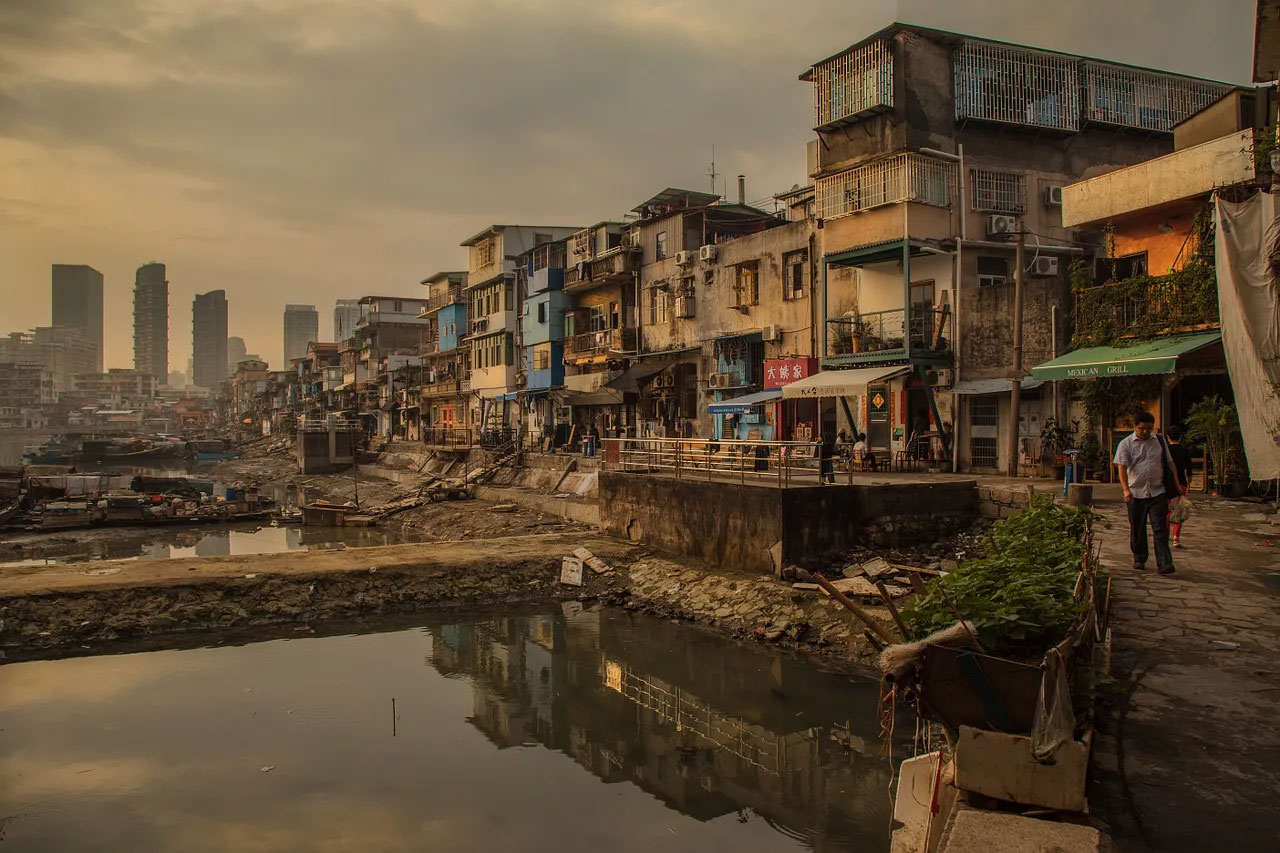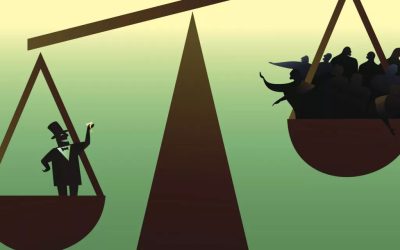By Garett Robertson

The love for all living creatures is the most noble attribute of man.
Charles Darwin
“One small step for man. One giant leap for mankind.” These familiar words spoken by Neil Armstrong during the Apollo moon landing marked a new chapter in the growth and development of humankind. Not only had we managed to lay dominance over all other species on the planet but we had declared that now we could even reach past our own world and reach the heavens. This was a truly special moment and the culmination of countless millennia of human development. Our intrinsic ability and desire to cooperate led us through the ages from using stone tools, to splitting atoms; riding horses to flying in airplanes; counting on fingers to building artificial intelligence.
These accomplishments could scarcely have been achieved had it not been for cooperation of people across generations and borders over the whole of human history. The great and famous minds who have shaped the way we think as well as the less visible, but no less great people who thought enough to teach their kids the value of working together each played their part in generating civilization as we know it today. It would be utterly impossible to stare across the brilliant skyline of Shanghai or London, without acknowledging the countless lives and unfathomably great efforts people made together to build them.
Despite all the greatness humanity has achieved through cooperation, it is a strange and stark contrast against events checkered across human history representing antagonism and hate. It is odd that with such strong advantage arising from partnership that people would somehow end up fighting so vehemently against each other. How could so many Golden Ages also repeatedly leave Trails of Tears? Is this the price of progress?
Economic prosperity and social unrest are not separate issues. They are in fact inexorably connected. The collective effort by all to encourage and promote cooperation in the short term has simultaneously laid the foundation for this great contradiction in the long term. The shade of cooperation is conflict and the reward for altruism is avarice. The connection between these seemingly opposing forces is the subject of this essay.
Philosophers through all ages have contemplated the benefits of cooperation. From Socrates to Adam Smith, philosophers have recognized the obvious advantages arising from successful divisions of labor. Specialization allows agents to be more productive than they otherwise could be. If these agents could come together and trust each other then they could be more productive than either alone could be. It makes only logical sense that these people work together to exploit and share the collective gains afforded by the relationship.
As labor is divided and people specialize, complex networks of economic agents form. These networks can be modeled showing how the wealth will be distributed between agents in the network. Some agents may receive more or less depending on the number of connections and the volume of resources that flow through each connection. In any case, all new wealth that is generated will be distributed through the network according to the structure of the network as long as the network remains the same. As new agents enter the network and existing connections change, the distribution of wealth will change.
The next logical question then is how do these connections form? They must be negotiated between both parties in an effort to fairly spread the utility in each transaction. On one side of the negotiation is the fact that the wealth generated by the network is the result of every agent in the network. Without the network, wealth could not be generated in the same way. To a certain degree, every agent is a stakeholder in every transaction within the network.
On the other side of the argument is the fact that not every agent is as productive as another. Why should a particularly productive agent receive equal to or less than a less productive agent?
Further compounding both sides of this negotiation is the additional challenge that economic agents do not always share knowledge equally making the negotiation more inefficient. Neoliberal economists would argue market efficiency in price setting but the reality is that social, cultural and psychological factors all play a role in ensuring that price setting is inefficient, irrational and fraught with opportunity for abuse. In these circumstances, it is practically impossible to ensure a fair distribution of wealth.
Knowing these challenges and needing some way to minimize the potential conflicts, agents come together logically and cooperatively to create structures to govern a more fair interplay between agents. Contracts form between individuals, and employers. Businesses, industries, governments, rules, laws and regulations are all structures that are used to preserve the interests of the agents in the economic network. These structures exist to create stability, trust, encourage cooperation, and most importantly resist changes to the network.
Change to the network is inevitable however. Agents enter and exit the network frequently with some agents being more significant than others. As the network changes, the structures resist it. They were after all designed to preserve the interests of all economic agents by binding the network to specific relationships and rules. They are not designed to adapt to change, as this would undermine the trust they were designed to create.
These circumstances leave two vital consequences. The first is that despite every agent’s best efforts to create cooperative relationships where economic utility is shared, some agents benefit more than others. The second is that the structures that were created cooperatively to protect the interests of all agents also are powerful instruments fighting against change.
Those benefiting most from the present economic network use the structures to undermine any change to the network. For them to succeed they need not propose any new innovations to the structure, they simply need to prevent change from happening. If the system is already providing a strong benefit, why risk those benefits through speculative changes when simply blocking change ensures the benefit remains? As the old adage goes, a bird in hand is worth two in the bush.
In order to protect their interests, the wealthy agents need only block changes. A new network, or changes to the existing network cannot happen unless the majority of economic agents agree to it. There must be unity in order to embrace change. By inciting divisions within the group, it is possible to prevent the kind of consensus required to change the structure. These divisions become stronger as points of difference become less rational and more emotional exhibited as strife, resentment, jealousy, envy and hate.
As social problems increase, the wealthy continue to accumulate the wealth granted to them by the present network. As they gather this wealth, they also look for strong investment opportunities since they cannot use it all directly themselves. As the structures prove their strength in restricting change, investors gain confidence. Their pursuit of wealth leads them to push for greater profits in increasingly risky ways knowing that the structures will protect and even bail them out. Risky asset bubbles form around this new investment thesis.
The simultaneous increase in both wealth inequality and social strife continue until the economic network and the structures that preserve it fundamentally change. These changes are difficult to make however. Since the majority created the structures in a cooperative effort, convincing them that it is broken is exceedingly difficult to do. Demographics of people who are not damaged and probably still benefiting from the structure have little incentive to risk changes to the system even when they see small groups within the network suffering.
Structures built around cooperation become structures of contention. Those agents losing the most and ultimately being injured by the system are the ones chanting ‘Black Lives Matter’, or occupying Wall Street. The agents left uninjured by the system stand by and watch unable to understand how the structures they created and supported out of cooperation would leave so many people competitively disabled.
Only when the majority of people are finally being injured by the network and structures will they mobilize in a way to make change. Perhaps this occurs through an asset bubble bursting in a catastrophic destruction of wealth that affects everyone similar to what happened during the Great Recession. Perhaps it is a massive social uprising or war like the Arab Spring or French Revolution. Perhaps it is a hurricane, earthquake, or other natural disaster. Whatever the cause, the structures only change in the presence of catastrophic events that have the ability to disrupt the economic network and forcibly change the social structures that preserve it.
This final outcome and problem is the result of a logical and cooperative effort to elevate our position. Wealth inequality and social strife are natural consequences of our cooperative behaviors. While we should all be concerned by it, we have not yet as the entire human race implemented a lasting solution to it. From the current wave of protectionist and divisive politics to the military-first, interventionist policies of neoconservatives, the structures do as they were designed; they attempt to preserve the network through division and violence.
Those people who need change are pitted against those who don’t while the problem is scapegoated against immigrant minorities who have no resources or negotiating power and the wealthy cling to neoliberal narratives reminding everyone that markets are efficient and shareholder value should be preserved because it is what everyone agreed to and change is dangerous.
Perhaps correct governance is the next frontier for humanity. People have been able to achieve over the millennia dominance over all plants, animals and ecosystems in this world through the push and pull of evolutionary pressures and yet have not figured out how to successfully govern themselves. Society’s most fundamental source of strength is simultaneously its undoing. Perhaps the future of humanity lies more in mastering cooperation and governance. Ignorance, attachment, greed, pride and envy are the blocks to progress.
If we as a people can reach the stars while letting the wealthy eat the spoils of the poor, imagine how much farther we will go when we learn to feed them.







